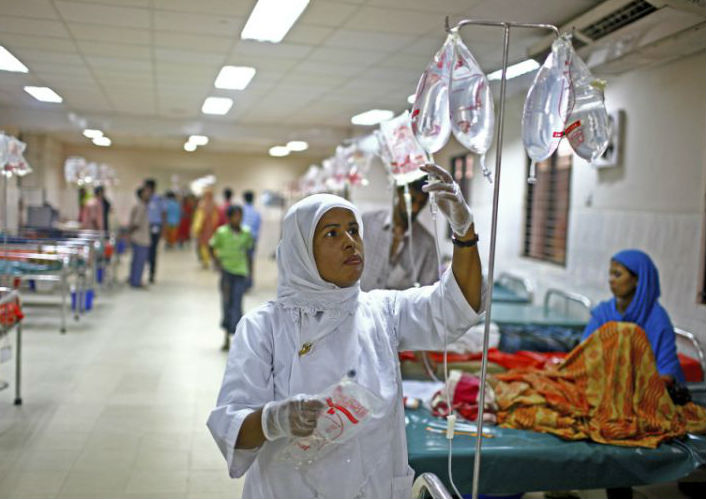By: Adel Fakhir
Send to a friend
The details you provide on this page will not be used to send unsolicited email, and will not be sold to a 3rd party. See privacy policy.
[BAGHDAD] UN agencies have expressed concern about a cholera outbreak in Iraq spreading across the region.
Cases of the waterborne disease surged in Iraq late last month, and have been confirmed in nearby including Bahrain and Kuwait.
“We expect an increase in the rate of infections [beyond] the officially declared figures as a result of the deteriorating security situation in Iraq,” Rana Sidani, a spokeswoman for the World Health Organization’s Eastern Mediterranean office, tells SciDev.Net.
“We expect an increase in the rate of infections [beyond] the officially declared figures as a result of the deteriorating security situation in Iraq.”
Rana Sidani, World Health Organization
As of 9 November, the Iraqi Ministry of Health said there had been more than 2,000 cases of cholera since September, distributed in 15 of the country’s 18 governorates. Heavy rain in the weeks before caused drainage systems to overflow, contaminating wells and the Euphrates River with wastewater.
In neighbouring Kuwait, the ministry of health confirmed five cholera cases as of 5 October, while in Bahrain, the government has reported 55 suspected cases, seven of which have been confirmed by lab tests.
“We are following up with concerned officials in the World Health Organization on the spread of epidemics in [nearby] countries,” says Mariam Al Hajri, director of the department of public health in the Bahraini Ministry of Health.
Al Hajri says the government is setting up a surveillance system, complete with laboratory testing to detect cases early. “We also work to educate travellers on disease prevention methods,” she adds.
But Ahmed Rudaini, a spokesman for the Iraqi health ministry, says: “It is not confirmed that the epidemic was transmitted from Iraq to neighbouring countries.”
Millions of international pilgrims are expected to flock to the Iraqi city of Karbala early next month to commemorate the Arbaeen, a Shia Muslim ceremony marking the end of 40 days of mourning for the grandson of the Prophet Mohammed.
Jeffrey Bates, chief of communications and strategic partnerships for Unicef (the UN’s Children’s Fund) in Iraq, says this is a concern. No restrictions have been put on international travel in relation to the outbreak, he says, but the best solution is to eliminate the disease at its source.
He adds, however, that Unicef helps to provide drinking water, water purification tablets and home treatment supplies to help prevent the spread of cases if they do occur. The Iraqi government has also established a command and control centre to oversee the response to the outbreak.
A sharp drop in funding from UN agencies and their partners has led to the closure of 84 per cent of health programmes supported by humanitarian aid organisations in Iraq, including the World Health Organization, since early August.Water and sanitation services have suffered heavily during the ongoing conflict and cholera has remained endemic in Iraq, with outbreaks occurring every three to five years. The last major outbreaks occurred in 2007 and 2012.
This piece was produced by SciDev.Net’s Middle East & North Africa desk.














